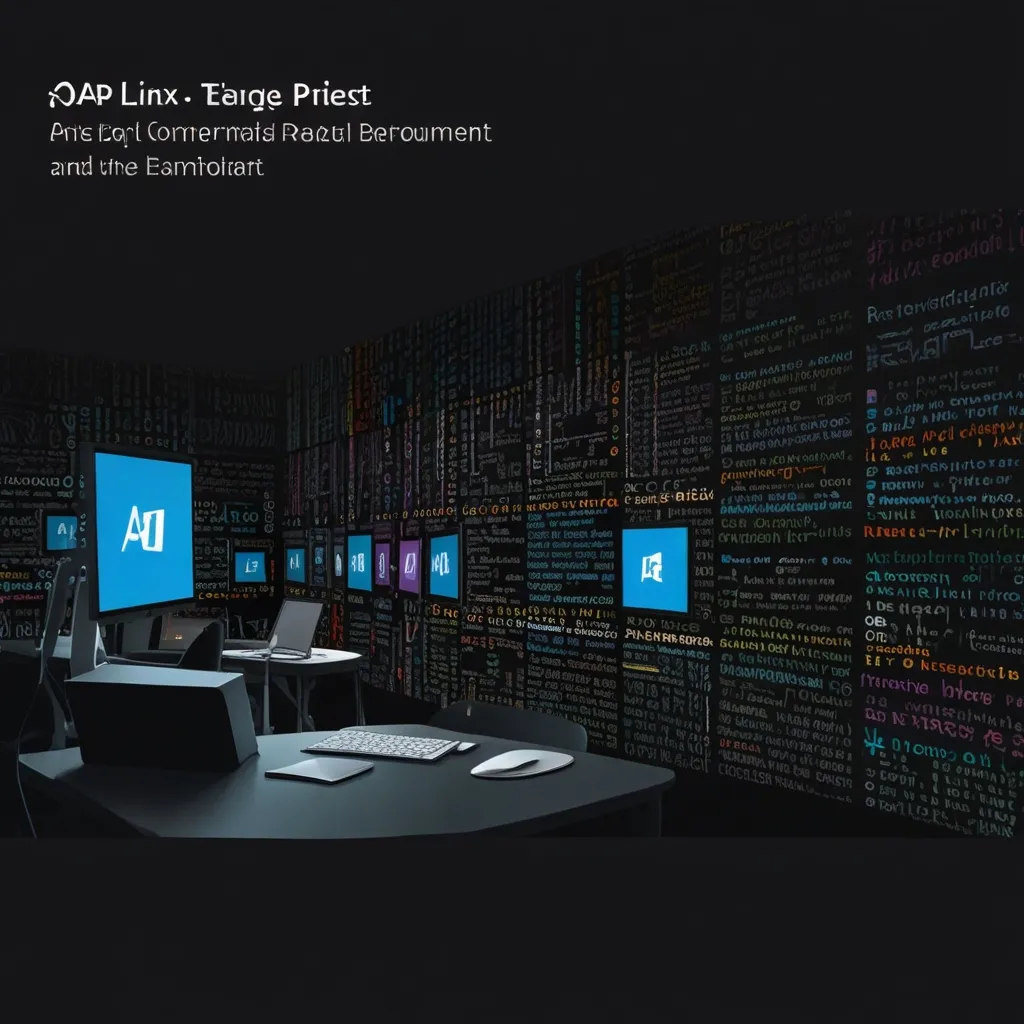Imagine you’re embarking on a journey through the intricate yet fascinating world of XML parsing, hand in hand with one of the most robust tools out there—libxml2. If you’re knee-deep in programming, especially in C, you know how overwhelming handling data interchange formats can get. Libxml2 stands as a beacon of hope for those grappling with XML, a language that’s as elegant as it is finicky.
I first stumbled upon libxml2 while navigating a complex project that required XML data handling—my initial thought was, “XML parsing? How hard can it be?” Fast forward a few convoluted attempts without libxml2, and I quickly realized that having a dedicated XML parser wasn’t just a luxury—it was a necessity.
So, let’s unravel libxml2 and demystify how it effortlessly bridges the gap between raw XML data and your application. At its core, libxml2 is about standards—it’s designed to comply with XML 1.0 and the XML Path Language (XPath), making it not only powerful but reliable.
Before diving into code, contemplate this: XML isn’t just about hierarchically structured data—it’s about accessing it efficiently. The first time I wrote code to parse XML without libxml2, it felt like trying to map a labyrinth without a guide. With libxml2, you get not just a map, but almost a well-paved route.
Here’s a taste of how straightforward and easy it gets with libxml2. Say you have an XML file of book titles:
<library>
<book>
<title>1984</title>
<author>George Orwell</author>
</book>
<book>
<title>Brave New World</title>
<author>Aldous Huxley</author>
</book>
</library>
The task is to parse these titles. In C, thanks to libxml2, it’s less of a headache:
#include <libxml/parser.h>
#include <libxml/tree.h>
void parseXML(const char* filename) {
xmlDoc* document = xmlReadFile(filename, NULL, 0);
xmlNode* root = xmlDocGetRootElement(document);
for (xmlNode* current = root->children; current; current = current->next) {
if (current->type == XML_ELEMENT_NODE && xmlStrEqual(current->name, (const xmlChar*)"book")) {
for (xmlNode* info = current->children; info; info = info->next) {
if (xmlStrEqual(info->name, (const xmlChar*)"title")) {
printf("Title: %s\n", xmlNodeGetContent(info));
}
}
}
}
xmlFreeDoc(document);
}
int main() {
parseXML("books.xml");
return 0;
}
This snippet does magic! It summarizes libxml2’s prowess by delicately abstracting complex tasks into manageable chunks. What once seemed like an untangle-able mess of tags and attributes quickly becomes a friendlier face.
Beyond parsing, libxml2 also tackles manipulation and creation of XML files. This versatility means that you can read, update, and generate XML with a level of confidence and stability that you just won’t find in home-brewed parsing solutions. Imagine having to meticulously update multiple nodes manually across thousands of lines—libxml2 turns a dreaded task into sheer simplicity.
And the goodness doesn’t end at minimal parsing. Libxml2 shines exceptionally with XPath, a query language for XML that allows navigating through elements and attributes. It’s like having a SQL query language for your XML data. You want to sift through elements to find specific patterns or data points? XPath with libxml2 is your answer. Marvel at how it distills mountainous XML to just the essence you need—elegantly.
Moreover, libxml2 is celebrated for something really close to every coder’s heart: performance. C is notorious for its speed, and libxml2 carries this legacy with pride, making your XML operations not just quick but also light on your system. Libraries in other languages like Python and Java lag at times due to their overhead. In contrast, libxml2 keeps your parsing snappy, akin to giving your application a dose of pure caffeine.
Venturing into other languages, if you’ve ever strayed into Python territory, you know how beautiful parsing can get with languages that offer libxml2 bindings like lxml. It’s the same reliable XML processing but in Python—a language that almost hugs you with indentation rather than brackets.
Embarking on the JavaScript journey? While XML isn’t as popular as JSON here, there are variants like xml2js which bring similar ease to JavaScript lands, offering XML parsing delight to node.js and browser-based environments.
And let’s not forget Go, a language that exudes minimalism and efficiency. Packages like goxml provide the comfort of libxml2-inspired parsing without straying from Go’s elegance.
As technologies evolve, frameworks like these demonstrate the seamless integration of XML parsing workflows across various programming environments. Even when trends ebb and flow, the reliability of libxml2 and its derivatives make sure you’re always on solid ground.
Wrapping this up, I really can’t overstate the usefulness of having libxml2 in your toolkit. It’s one of those rare gems that make arduous tasks achievable. When you find yourself on a project that requires precise and efficient XML handling, remember this tale of XML parsing made easy. Libxml2 isn’t just a library; it’s an ally in taming the wild beast that XML can sometimes be.






